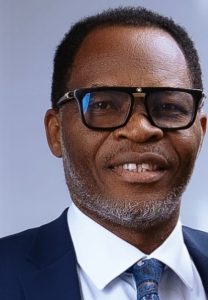HOMELAND VALUES: A GLOBAL MOVEMENT FOR VALUE REORIENTATION

By Ewere Okonta
08037383019
ewereokonta20@gmail.com
www.ewereokontablog.org.ng
In an age where societal values appear to be increasingly overshadowed by self-interest and shifting cultural norms, a global call for value reorientation is becoming more urgent. It’s a call to revisit the values that once defined and unified us as communities and nations—values like respect, hospitality, integrity, and service.
This clarion call is led by none other than Barrister Eugene Uzum, the Orientation Czar and former Director General of the Bureau of Orientation in Delta State, who has committed himself to an ambitious mission: to restore the moral fabric of our communities and reinvigorate a collective consciousness rooted in our most cherished homeland values.
Recognizing the alarming erosion of core values, Uzum has assembled a formidable team of visionaries, each equipped with unique expertise and a shared desire for change. From policy advisors and union activists to students, media moguls, international scholars, and engaged citizens, this coalition represents a mosaic of perspectives and experiences. Together, they are united in their mission to change mindsets and reintroduce essential homeland values into the heart of our society.
Homeland values play a pivotal role in shaping the character and collective strength of a community, and nowhere is this more evident than in Africa, where values such as hard work, respect, integrity, service, and good morals have traditionally been revered. These values aren’t just individual traits; they represent a moral compass guiding community life, decision-making, and relationships. Embracing and promoting these cherished African values serves as a pathway to both personal and communal growth, allowing people to honor their roots while navigating the complexities of modern society.
*THE ESSENCE OF AFRICAN VALUES*
In many African societies, values are ingrained from a young age through family, community teachings, and traditional rites of passage. They serve as a foundation for social behavior, creating a sense of belonging and identity. Here’s a closer look at each of these cherished values:
1. Hard Work
Hard work is celebrated in African societies as the cornerstone of success and self-sufficiency. In agrarian and urban settings alike, effort and diligence are seen as the pathways to prosperity. Hard work goes beyond individual success; it strengthens the community by creating economic stability, reducing dependency, and fostering resilience. In today’s world, reinforcing this value means not only celebrating personal achievements but recognizing those who uplift their communities through dedication and perseverance.
2. Respect
Respect is fundamental to African cultural systems, extending from family to community and leadership. It governs how people interact with each other, with elders, and with authority figures. Respectful behavior builds trust, facilitates cooperation, and helps resolve conflicts peacefully. In contemporary settings, where younger generations are increasingly exposed to diverse cultural influences, fostering respect as a core value is essential to maintaining harmony and cohesion within families and communities.
3. Integrity
Integrity is highly valued, shaping how people are viewed in both personal and professional spheres. In African societies, a person of integrity is someone who honors their commitments, is honest in their dealings, and can be trusted by others. With modern pressures leading to ethical compromises in various sectors, reinforcing integrity as a value becomes crucial in building trustworthy leadership and institutions. Integrity not only helps individuals lead honorable lives but also cultivates a culture of accountability.
4. Service
Service is deeply embedded in African culture through practices like communal labor, collective farming, and community caregiving. A person of service is admired for their willingness to contribute to the welfare of others, whether through material support or personal effort. As social structures evolve, service-oriented values foster empathy, community support, and a sense of responsibility toward others. This value not only unites communities but also builds resilience in times of need.
5. Good Morals
Good morals, encompassing kindness, humility, and self-restraint, are the moral foundation upon which healthy communities are built. These values promote an environment where people can coexist peacefully, where youth can grow in safety, and where families can thrive. By prioritizing moral values, communities establish social norms that uphold human dignity, protect the vulnerable, and create a shared sense of decency.
*THE ROLE OF ORIENTATION IN REVITALIZING HOMELAND VALUES*
Orientation serves as the vehicle through which these values can be rejuvenated, taught, and adapted to fit modern contexts. By systematically reorienting citizens towards these values, communities and governments can counterbalance the external influences that often lead to the erosion of cultural principles. To ensure the success and long-lasting impact of this initiative, Barrister Uzum has structured the Homeland Values Movement around six strategic components:
1. Educational Integration of Homeland Values
Education is the bedrock of any lasting change. By integrating homeland values into school curricula, this movement aims to nurture a generation with a deep-seated sense of respect, service, and integrity. Schools will serve as breeding grounds for young leaders who prioritize these values and understand the critical role they play in personal and societal growth. The educational approach is also designed to foster open discussions about ethics and community responsibility from an early age.
Integrating homeland values into educational curriculum is essential to instilling them from a young age. Schools can incorporate stories, discussions, and community projects that highlight and honor these values. Through structured education, young people learn not only the theoretical importance of values like integrity and respect but also how to apply them in everyday life. This foundational education equips the next generation with a moral compass to navigate their future.
2. Community Orientation Platforms
Community orientation platforms provide the essential space for continuous dialogue and reorientation. By setting up regular workshops, town hall meetings, and seminars across different regions, this initiative encourages people to come together, reflect, and rebuild. These platforms will bring diverse community members into a unified conversation, creating a foundation for both grassroots and large-scale change.
Community-led orientations encourage people to reconnect with traditional values and understand their practical benefits, whether through storytelling, group activities, or mentorship. By normalizing these discussions, communities can maintain the relevance of values across generations.
3. Media and Cultural Advocacy
Media has the power to shape narratives, influence opinions, and inspire action. Recognizing this, Uzum’s team is working with media experts to develop campaigns that highlight the importance of homeland values and showcase success stories of individuals and communities who embody them. This media push will extend across radio, television, and social media, making it easy for everyone to connect with the movement and its message.
Media plays a crucial role in reshaping public attitudes and highlighting positive examples of these values in action. Campaigns that promote respect, integrity, and service can influence behaviors and inspire people to embrace these ideals. Cultural advocacy, too, reminds people of the importance of their roots and heritage, motivating them to protect and promote these values within their spheres of influence. Media narratives that celebrate integrity, hard work, and kindness counter the sensationalism of less desirable traits, creating role models for society to follow.
4. Incentivizing Value-based Leadership
To promote integrity and accountability, the Homeland Values Movement aims to incentivize leaders who exemplify these core values. Through awards, recognitions, and professional opportunities, this program will honor leaders in the public, private, and community sectors who demonstrate commitment to integrity, selflessness, and a vision for the common good. By spotlighting these exemplary figures, the initiative hopes to encourage others to follow their lead.
When leaders visibly embody homeland values, they inspire others to do the same. Recognizing and rewarding leaders who exemplify these values in public service or business highlights the tangible benefits of living by these principles. By setting up programs that honor value-based achievements, orientation initiatives send a strong message that values are not only personally fulfilling but also publicly celebrated.
5. Public Sector and Institutional Value Alignment
This movement calls for a closer alignment of homeland values within public institutions. Barrister Uzum envisions a public sector that prioritizes transparency, accountability, and a citizen-centered approach. Policies will be revised and adjusted to reflect the values of integrity, service, and social responsibility. The public sector will not only adopt these values in words but embody them in action, setting a standard for private and non-profit institutions to follow.
Embedding homeland values within public institutions provides a framework for ethical governance and citizen-centered services. By aligning institutional policies with values like integrity, service, and respect, the public sector sets a precedent that other sectors can emulate. Institutional value alignment also builds trust among citizens, encouraging them to participate actively in governance and community initiatives.
6. Monitoring, Evaluation, and Continuous Improvement
No initiative is complete without accountability. Monitoring and evaluation frameworks will track the progress of each program component, ensuring transparency and measurable results. Feedback loops will be set up to allow continuous improvement, adapting approaches based on what works best in different communities and settings. By maintaining flexibility and responsiveness, Uzum’s team is committed to refining their strategies as they learn from real-world implementation.
Orientation is an ongoing process. Monitoring the effectiveness of these programs allows for real-time adjustments and ensures the sustained relevance of values in people’s lives. By measuring the impact of orientation initiatives, communities can continually adapt strategies to address emerging challenges and stay aligned with their core values.
*A COLLECTIVE EFFORT TO RECLAIM AND UPHOLD VALUES*
Revitalizing homeland values is not solely the responsibility of individuals; it requires a collective commitment from families, communities, schools, institutions, and governments. Together, they create a society where each person feels a sense of duty to uphold and pass on these values, fostering a culture that thrives on respect, integrity, hard work, and service.
Barrister Uzum’s vision for a reoriented society is not only achievable but essential for a sustainable future. As his team of change-makers strives to restore these timeless values, they remind us all of the strength found in unity, the pride in honoring our heritage, and the promise of a better tomorrow grounded in shared principles. In championing homeland values, we embrace a cultural legacy that transcends time and borders, reinforcing an African identity that stands tall in a changing world.
*MOVING FORWARD: A COLLECTIVE RESPONSIBILITY*
The path to reclaiming our homeland values will not be an easy one, but with the caliber of dedicated change-makers in Uzum’s team, this vision is within reach. The Homeland Values Movement is not just a policy but a commitment to each other, a promise to respect our roots, and a pledge to build a brighter future through unity and shared responsibility.
Indeed, no prize will be too great to pay for the restoration of our cherished homeland values. It is an investment in the social fabric that binds us, a journey that requires the commitment of every citizen, institution, and leader. By supporting and participating in this initiative, we each play a part in creating a legacy of integrity, kindness, and national pride that will endure for generations to come.
*Ewere Okonta is the CEO of EOB Media. He writes from the Department of Business Administration, University of Delta, Agbor*

